
Greg Proops
Greg Proops is an actor and comedian best known as a cast member on Whose Line Is It Anyway?

Greg Proops is an actor and comedian best known as a cast member on Whose Line Is It Anyway?

[via Twitter]
"The fulfilled renown of Moby-Dick and of As I Lay Dying is augmented by Blood Meridian, since Cormac McCarthy is the worthy disciple both of Melville and Faulkner," writes esteemed literary scholar Harold Bloom in his Introduction to the Modern Library edition. "I venture that no other living American novelist, not even Pynchon, has given us a book as strong and memorable." Cormac McCarthy's masterwork, Blood Meridian, chronicles the brutal world of the Texas-Mexico borderlands in the mid-nineteenth century. Its wounded hero, the teenage Kid, must confront the extraordinary violence of the Glanton gang, a murderous cadre on an official mission to scalp Indians and sell those scalps. Loosely based on fact, the novel represents a genius vision of the historical West, one so fiercely realized that since its initial publication in 1985 the canon of American literature has welcomed Blood Meridian to its shelf. "A classic American novel of regeneration through violence," declares Michael Herr. "McCarthy can only be compared to our greatest writers." From the Hardcover edition.
[via Twitter]
Also recommended by: Colin Hanks
Nineteen Eighty-Four, sometimes published as 1984, is a dystopian novel by George Orwell published in 1949.The novel is set in Airstrip One (formerly known as Great Britain), a province of the superstate Oceania in a world of perpetual war, omnipresent government surveillance and public manipulation, dictated by a political system euphemistically named English Socialism (or Ingsoc in the government's invented language, Newspeak) under the control of a privileged Inner Party elite, that persecutes individualism and independent thinking as "thoughtcrimes". The tyranny is epitomised by Big Brother, the quasi-divine Party leader who enjoys an intense cult of personality but who may not even exist. The Party "seeks power entirely for its own sake. We are not interested in the good of others; we are interested solely in power."The protagonist of the novel, Winston Smith, is a member of the Outer Party, who works for the Ministry of Truth (or Minitrue), which is responsible for propaganda and historical revisionism. His job is to rewrite past newspaper articles, so that the historical record always supports the party line. Smith is a diligent and skillful worker but he secretly hates the Party and dreams of rebellion against Big Brother.
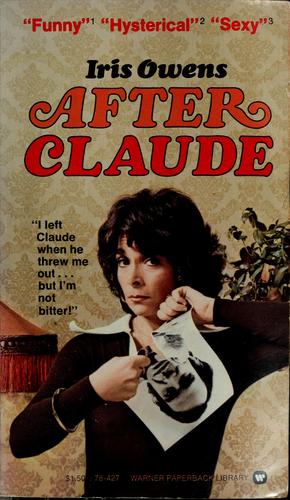
[via Twitter]
Harriet is leaving her boyfriend Claude, the French rat. That at least is how Harriet sees things, even if its Claude who has just asked Harriet to leave his Greenwich Village apartment. Well, one way or another she has no intention of leaving. To the contrary, she will stay and exact revengeor would have if Claude had not had her unceremoniously evicted. Still, though moved out, Harriet is not about to move on. Not in any way. Girlfriends circle around to patronize and advise, but Harriet only takes offense, and its easy to understand why. Because mad and maddening as she may be, Harriet sees past the polite platitudes that everyone else is content to spout and live by. She is an unblinkered, unbuttoned, unrelenting, and above all bitingly funny prophetess of all that is wrong with womens lives and heartsuntil, in a surprise twist, she finds a savior in a dark room at the Chelsea Hotel.
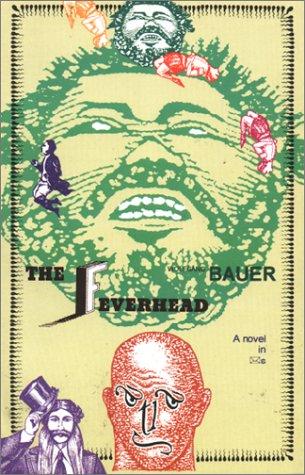
[via Twitter]
A novel in letters in which every letter between the correspondents crosses in the post.
[via Twitter]
Patrick Suskind's Perfume follows the life of Jean-Baptiste Grenouille, abandoned at birth in the slums of eighteenth-century Paris, but blessed with an outstanding sense of smell. This gift enables Jean-Baptiste to master the art of perfume making, but one scent evades him: that of a virgin, whom he must possess to ensure her innocence and beauty are preserved. Laced with sense and suspense, this is a beguiling tale of lust, desire and deadly obsession. Co-founded by Jane and Glenn McGrath, the McGrath Foundation raises money to place McGrath Breast Care Nurses in communities right across Australia and to increase breast awareness in young women. The McGrath Foundation believes 150 of these specially trained nurses are needed to ensure that every family experiencing breast cancer has access to a breast care nurse, no matter where they live or their financial situation. McGrath Breast Care Nurses offer a unique service to families who can self-refer to this free support. Penguin is proud to donate $1 from the original sale of each Pink Popular Penguin to help the McGrath Foundation realise their goal. To find out how you can make a difference visit www.mcgrathfoundation.com.au
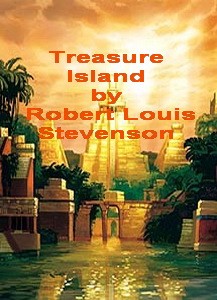
[via Twitter]
[via Twitter]
Bringing to life the subterfuge and double-dealing of Roman nobility, Robert Graves's I, Claudius brings the ancient world to life with startling clarity and meticulous realism. This Penguin Modern Classics edition is a includes an introduction by Barry Unsworth. Despised for his weakness and regarded by his family as little more than a stammering fool, the nobleman Claudius quietly survives the intrigues, bloody purges and mounting cruelty of the imperial Roman dynasties. In I, Claudius he watches from the sidelines to record the reigns of its emperors: from the wise Augustus and his villainous wife Livia to the sadistic Tiberius and the insane excesses of Caligula. Written in the form of Claudius' autobiography, this is the first part of Robert Graves's brilliant account of the madness and debauchery of ancient Rome, and stands as one of the most celebrated, gripping historical novels ever written. Robert Ranke Graves (1895-1985) was a British poet, novelist, and critic. He is best known for the historical novel I, Claudius and the critical study of myth and poetry The White Goddess. His autobiography, Goodbye to All That, was published in 1929, quickly establishing itself as a modern classic. Graves also translated Apuleius, Lucan and Suetonius for the Penguin Classics, and compiled the first modern dictionary of Greek Mythology, The Greek Myths. His translation of The Rubaiyat of Omar Khayyam (with Omar Ali-Shah) is also published in Penguin Classics. If you enjoyed I, Claudius, you might like Graves's sequel Claudius the God, also available in Penguin Modern Classics. 'An imaginative and hugely readable account of the early decades of the Roman Empire ... racy, inventive, often comic' Daily Telegraph 'Still an acknowledged masterpiece and a model for historical fiction ... sympathetic and intensely involving: a great feat of imagination' Hilary Mantel, author of Wolf Hall
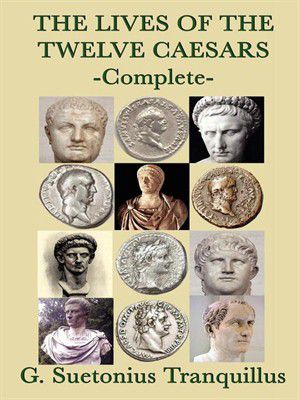
[via Twitter]
Suetonius' classic treatise on the lives of the first twelve emperors of the Roman Empire.
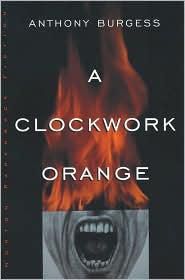
[via Twitter]
A newly revised text for A Clockwork Oranges 50th anniversary brings the work closest to its authors intentions. A Clockwork Orange is as brilliant, transgressive, and influential as when it was published fifty years ago. A nightmare vision of the future told in its own fantastically inventive lexicon, it has since become a classic of modern literature and the basis for Stanley Kubricks once-banned film, whose recent reissue has brought this revolutionary tale on modern civilization to an even wider audience. Andrew Biswell, PhD, director of the International Burgess Foundation, has taken a close look at the three varying published editions alongside the original typescript to recreate the novel as Anthony Burgess envisioned it. We publish this landmark edition with its original British cover and six of Burgesss own illustrations.